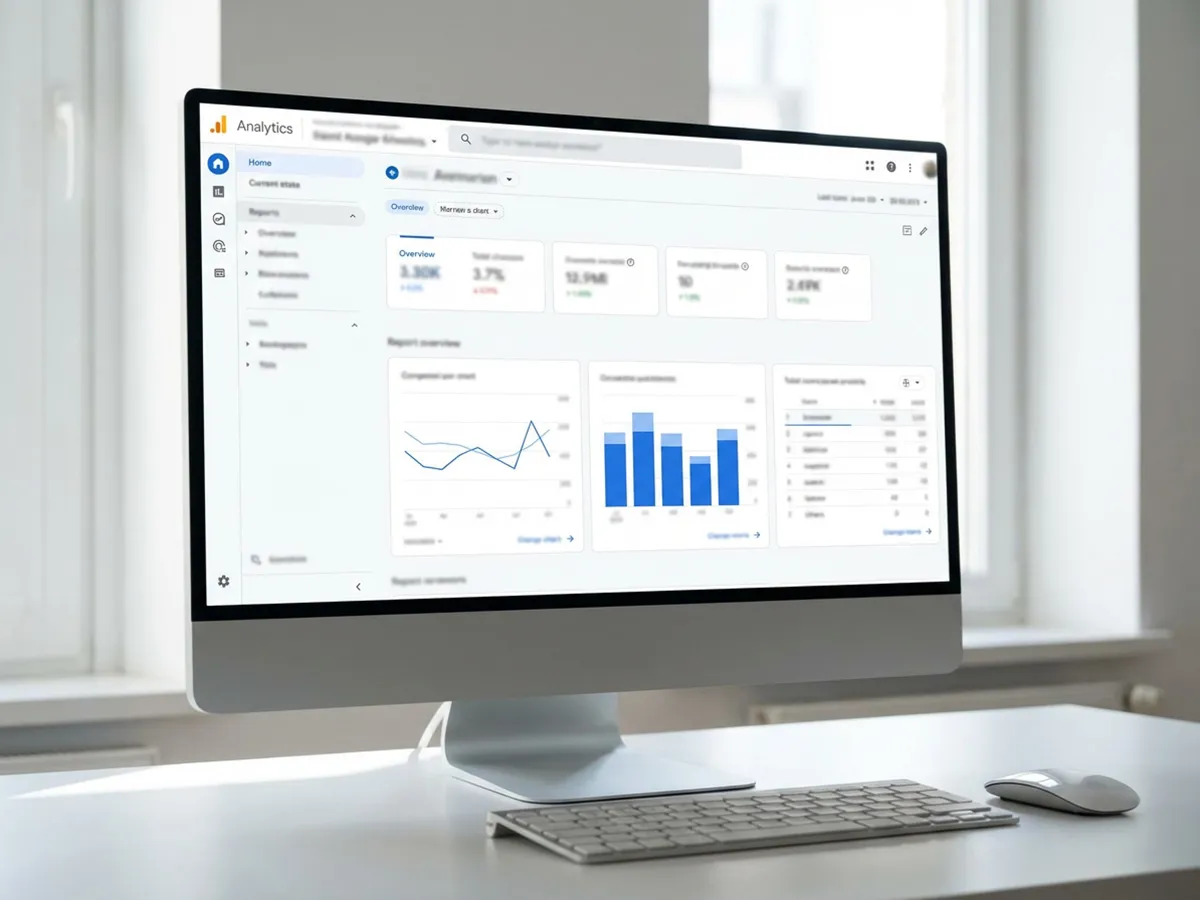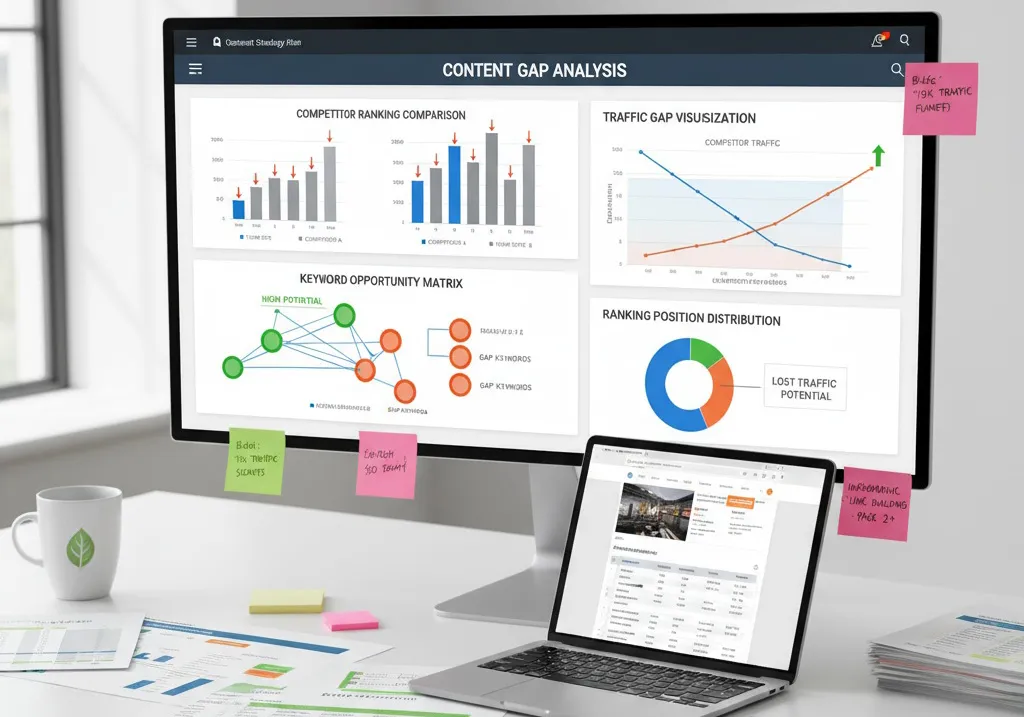Local business listings are essential for any company looking to improve their local SEO rankings and attract nearby customers.
This comprehensive guide covers everything you need to know about creating, optimising, and managing your business directory listings for maximum visibility.
What Are Local Business Listings?
Local business listings (also known as local citations) are online mentions of your company’s Name, Address, and Phone number (NAP) across various directories and platforms. These listings typically include additional information like business hours, reviews, photos, and website links.
Local citations serve as digital references that help search engines verify your business legitimacy and improve your local search visibility. The more consistent and widespread your listings, the stronger your local SEO foundation becomes.
Key components of effective business listings include:
- NAP consistency across all platforms
- Business category selection for better targeting
- Customer reviews and ratings for social proof
- High-quality images showcasing your business
- Accurate business hours, including holiday schedules
Why Local Business Listings Are Critical for SEO
Local directory submissions significantly impact your Google My Business ranking and overall local search performance. Search engines use these citations to validate your business information and determine ranking positions in local search results.
Citation building provides multiple SEO benefits that directly influence your online visibility. Consistent NAP data across directories builds trust with search engines, while diverse listing sources create a robust digital footprint for your business.
Primary benefits include: • Improved local search rankings in Google’s map pack • Enhanced online visibility across multiple platforms • Increased customer trust through verified business information • Better click-through rates from local search results • Stronger domain authority through quality backlinks
Top 15 Business Directory Sites for Maximum Impact
Essential Search Engine Directories
Google Business Profile remains the most important local listing platform for businesses. This free listing directly impacts your Google Maps rankings and local search visibility.
Bing Places for Business captures users on Microsoft’s search network, offering additional exposure beyond Google’s ecosystem.
Major Online Business Directories
Yelp dominates consumer review searches and significantly influences purchasing decisions through customer reviews and ratings.
Better Business Bureau (BBB) provides credibility through accredited business status and complaint resolution services.
Yellow Pages maintains strong domain authority and continues driving local traffic despite digital transformation.
Industry-Specific Local Directories
Tripadvisor for hospitality, travel, and restaurant businesses seeking tourism-related exposure.
Angi (formerly Angie’s List) for home service providers and contractors targeting homeowners.
Houzz for interior designers, architects, and home improvement professionals.
FindLaw for legal professionals seeking qualified client leads.
Healthgrades for healthcare providers and medical practices.
Additional valuable directories: • Foursquare for location-based discovery • Superpages for comprehensive business listings • Local.com for community-focused visibility • Apple Maps for iOS user targeting • Chamber of Commerce listings for local networking
Step-by-Step Local Listing Setup Process
1. Prepare Your Business Information
NAP consistency forms the foundation of successful local citation building. Standardising your business information before creating listings prevents confusion and ensures search engine trust.
Essential information to prepare includes standardized formatting for your business name, complete street address, primary phone number, and official website URL. This preparation phase prevents costly mistakes and saves time during the submission process.
Required elements for business directory submissions:
- Official business name (exactly as registered)
- Complete physical address with consistent formatting
- Primary contact phone number (avoid call tracking numbers)
- Business website URL (preferably homepage)
- Business category selections for proper classification
- Operating hours including special holiday schedules
- Business description optimised with relevant keywords
- High-quality photos of your business, products, or services
2. Directory Selection Strategy
Local SEO directory selection should align with your target audience and business type. Prioritising high-authority sites and industry-specific platforms maximises your citation-building impact.
Focus on business listing sites that your customers actively use when searching for services. Google Business Profile should always be your first priority, followed by major directories like Yelp and BBB.
Strategic directory priorities: • Major search engine business profiles (Google, Bing, Apple) • High-authority directories with strong domain rankings • Industry-specific platforms relevant to your business type • Local community directories and chamber of commerce sites • Social media business profiles (Facebook, LinkedIn, Instagram)
3. Business Listing Optimisation
Local listing optimisation goes beyond basic NAP information to include strategic keyword placement and compelling business descriptions. Optimized listings attract more customers and improve search engine rankings.
Keyword optimisation within your business description helps search engines understand your services while appealing to potential customers. Focus on local keywords that combine your services with geographic terms.
Optimisation best practices:
- Strategic keyword placement in business descriptions
- Local keyword integration for geographic targeting
- Complete profile information, including all available fields
- Regular content updates with fresh photos and information
- Customer review encouragement through follow-up communications
- Review response management for both positive and negative feedback
Google My Business Optimisation Strategies
Google Business Profile optimization requires attention to specific ranking factors that influence local search visibility. Your GMB listing often serves as the first impression for potential customers discovering your business.
Google Maps rankings depend heavily on profile completeness, customer engagement, and information accuracy. Regular updates and active management significantly improve your local search performance.
Advanced GMB optimisation techniques:
- Google My Business posts for regular content updates
- Q&A section management for common customer inquiries
- Attribute selection for detailed business characteristics
- Service area definition for broader geographic targeting
- Appointment booking integration for service-based businesses
- Product catalogue additions for retail businesses
Local Citation Building Best Practices
Citation consistency across all platforms prevents search engine confusion and maintains ranking stability. Even minor variations in NAP data can negatively impact your local SEO performance.
Quality over quantity remains crucial in local directory submissions. Focus on authoritative directories rather than low-quality listing sites that could harm your reputation.
Essential citation-building guidelines:
- Exact NAP matching across all directory listings
- Authoritative directory selection for maximum impact
- Regular audit schedules to maintain accuracy
- Duplicate listing removal to prevent confusion
- Structured data markup implementation on your website
- Local schema markup for enhanced search engine understanding
Business Listing Management and Monitoring
Local listing management requires ongoing attention to maintain accuracy and maximize effectiveness. Regular monitoring prevents outdated information from harming your search rankings.
Citation monitoring helps identify inconsistencies, duplicate listings, and opportunities for improvement. Automated tools can streamline this process while ensuring comprehensive coverage.
Effective management strategies include:
- Monthly listing audits for accuracy verification
- Review monitoring across all platforms
- Competitor analysis for improvement opportunities
- Performance tracking through analytics and ranking
- Emergency update protocols for business changes
- Reputation management for maintaining positive online presence
Local SEO Tools for Streamlined Management
Local SEO software can automate many aspects of citation building and listing management. These tools save time while ensuring consistency across multiple platforms.
Citation management tools offer features like bulk submissions, duplicate detection, and performance reporting. Investment in quality tools often pays for itself through improved efficiency and better results.
Recommended tool categories: • Citation distribution platforms for automated submissions • Listing monitoring software for accuracy tracking • Review management tools for reputation oversight • Local rank tracking for performance measurement • Competitor analysis tools for market insights
Common Local Listing Mistakes to Avoid
Citation errors can significantly harm your local search rankings and customer experience. Understanding common mistakes helps prevent costly issues that require extensive cleanup efforts.
Inconsistent NAP information represents the most frequent and damaging error in local citation building. Even small variations can confuse search engines and dilute your ranking potential.
Critical mistakes to prevent:
- NAP inconsistencies across different platforms
- Incomplete profile information leaving fields blank
- Wrong business categories affecting search visibility
- Outdated business hours creating customer frustration
- Ignoring customer reviews and failing to respond
- Duplicate listings causing search engine confusion
- Poor quality photos that don’t represent your business well
Measuring Local Listing Success
Local SEO metrics help quantify the impact of your citation building efforts and identify areas for improvement. Regular performance tracking ensures your strategy remains effective.
Local search rankings serve as primary indicators of citation success, while customer actions like calls and directions provide insight into listing effectiveness.
Key performance indicators: • Local search ranking positions for target keywords • Google My Business insights for customer interactions • Website traffic from local directory referrals • Phone calls and direction requests from listings • Customer review volume and rating improvements • Competitor comparison metrics for market position
Conclusion: Building Your Local SEO Foundation
Local business listings form the cornerstone of an effective local SEO strategy. Consistent NAP information, strategic directory selection, and ongoing listing management creates a sustainable competitive advantage in local search results.
Start with Google Business Profile optimisation, then expand to major directories and industry-specific platforms. Regular monitoring and updates ensure your local citations continue supporting your business growth objectives.
Success in local search requires patience and consistent effort, but the results—increased visibility, more customers, and stronger online presence—justify the investment in comprehensive local listing management.

















